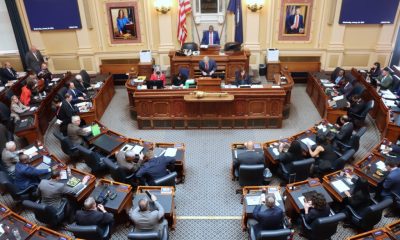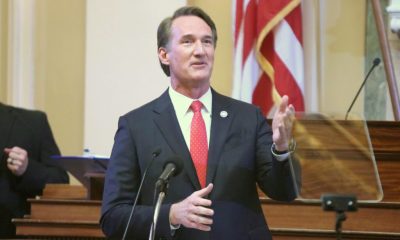




I rarely get personal with my articles, but this week’s subject resonates with me. One of the hardest days of my life was when a doctor confirmed to my wife and me what we already suspected – that my son, my oldest child had autism.
We knew that not all was lost. Compared to many, we are blessed in that he is high-functioning and incredibly smart. Yet it is still a blow to any parent knowing that their child is different and would have challenges many other kids would not have to face.
That has been the case with our child. While he excelled in school, graduating as valedictorian and earning the state regent’s scholarship, he struggled making connections. He has always wanted friends, but does not know how to talk to his fellow students. It’s difficult for people he meets to understand what is going on in that big brain of his. He struggles to look people in the eye, does not know what to say and can’t understand nonverbal cues. It’s easy to judge him as slow, until you talk to him about movies. Suddenly, he comes to life and knows more about movies than anyone I know—how they are made, who starred in and directed every film, and even types of techniques the directors used. I have read some of his movie reviews and he sees movies different than most and understands things that I did not even know I was supposed to understand.
My dream for my son is that the world understands that he is special, and that autism makes him different not lesser. That is the exact message of HBO’s Temple Grandin. Grandin’s condition allows her to see things differently which has allowed her to improve things in her field. The biopic of her life and struggles have brought hope to thousands of parents like me who want what is best for their kids.
I teach at the University of Science and Arts of Oklahoma. I could write dozens of articles about why this school is special, but the one program of which I am most proud is The Neill-Wint Center for Neurodiversity. Started by Kathy Perry and sponsored by Phillip and Katie Wint, the center’s mission is to assist students with autism spectrum disorder in their transition to college life and to help ensure postsecondary success. Partly because of the center, on Feb. 23, as part of the Emerson-Weir Liberal Arts Series, Temple Grandin herself will be the keynote speaker.
My son, who is currently part of the Neill-Wint Center and lives on campus, comes home at least once a week and we watch a movie together. With his love of all movies and me being a historian, we tend to watch a classic. However, this past week he asked that we watch Temple Grandin staring Clair Danes in preparation for her upcoming visit. I was so inspired by this movie that I knew I needed to include a review in my column.
Grandin, born in 1947, dealt with autism in a time when the condition was still relatively unknown. The movie starts with her at a boarding school where, because of a strong mother and sainted teachers who recognized her gifts, she was able to excel. It then followed her through college and graduate school. At each level there were many who stood in her way, believing she was not capable of learning. At each level, she proved them wrong. Not only did she learn, but she excelled and became a published author and expert in animal behavior.
At the end of the movie, she is attending an autism conference where parents were shown trying to handle their autistic children in different ways. When Grandin speaks up and announces that she is autistic and a has a Ph.D., suddenly every parent in the room wanted to hear everything she had to say. Symbolically, ever parent of an autistic child, including myself, was in that room. Seeing what she overcame shows each of us that our children can also. There are things I can say technically about the movie, but it only seems right that I turn that part over to my son.
“Temple Grandin is a fine film. It does a good job at explaining who Temple Grandin is, specifically when it comes to her work in agriculture that first brought her attention, as well as her life growing up with autism that most people know her for. Claire Danes is great as Grandin, disappearing into the role without her performance coming across as cartoony. Director Mick Jackson succeeds at getting across how Grandin thinks, thanks to the stylistic use of on-screen graphics as well as small cutaways to show how she interprets certain phrases literally. Temple Grandin might feel like a TV movie, and it probably won’t blow everyone’s minds away, but it’s still worth a watch.”
I am excited to see Dr. Grandin in person. Watching the movie has made her a personal hero. She broke down many barriers in higher education and paved a way for students like my son and the others to chase their dreams. It is because of people like Dr. Grandin that USAO has already seen several students in the Neill-Wint Center walk across the stage at graduation.
That day at the doctors may have been one of my hardest days, but I also know that watching my son cross the stage in April when he graduates college will be one of my absolute best.
James Finck is a professor of history at the University of Science and Arts of Oklahoma. He may be reached at HistoricallySpeaking1776@gmail.com.
















